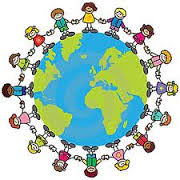
There has been much talk for years about globalization – but only recently has its inevitability and benefits been fully realized. In the past it was often used as a pejorative term associated with the exploitation of labour in the third world. But as the digital revolution spread and both linguistic and cultural barriers broke down it has opened up the possibility of ever-wider connectivity.
In the face of this new globalization old political boundaries appear increasingly irrelevant. The ability of individuals to share ideas and develop ties across vast distances has developed hand in hand with a deepening skepticism – especially about the virtues of democratic institutions. We all now realize that political systems of all kinds deprive us of our personal integrity and vitality. Decision making by governments is slow and cumbersome, in contrast with the speed of initiatives by individual or private sector corporate players. We also trust those in the non-government sphere more than arrogant politicians, corrupt officials and incompetent public servants.
These developments place a greater weight of importance on both our digital communities and employment relationships. Something sadly which HR professionals have generally been slow to realize. Yes, the best employers have redefined their ‘social contracts’ with their workforce – extended the concept of benefits-in-kind to encourage interaction between staff outside normal working time, but this can often seem to smack of old-style paternalism. The way round this is, ironically, to inject some genuine democracy into extra curricular activities – allowing those even in junior positions to take the driving seat when arranging sports, communal enjoyment of hobbies or even more work-related events such as job fairs. All this means that those with the greatest energy and strongest personalities rather than corporate conformity and seniority will shape our future, organizational structures will break down and alternative corporate power structures will emerge to challenge traditional notions of ownership and control.